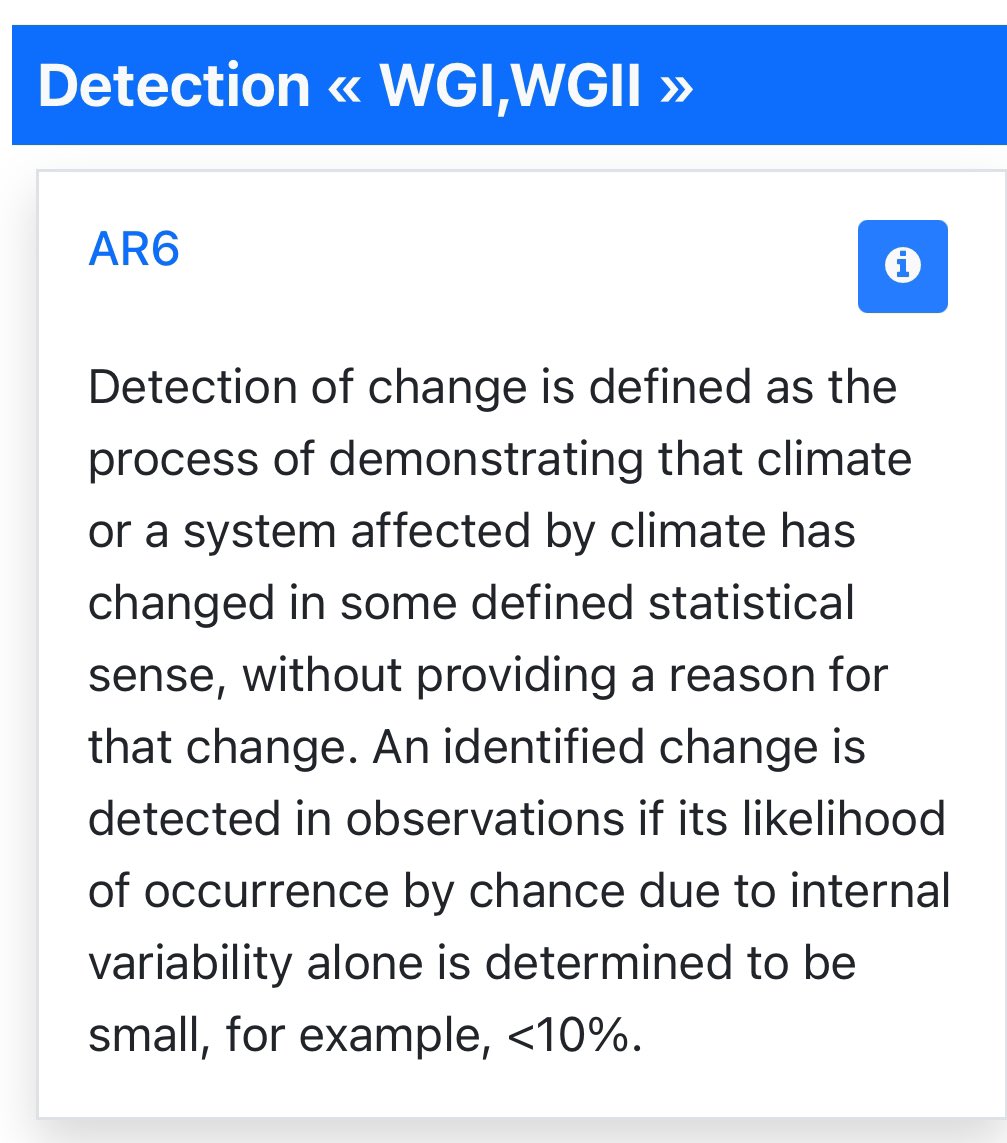🧵
Happy Monday
I'm going to let you in on a secret
It is out in the open but I doubt you've heard about it
Th most recent CMIP6 modeling studies of tropical cyclones/hurricanes project no detectable changes in storm metrics most associated with damage ... under RCP8.5 ... 1/n
Happy Monday
I'm going to let you in on a secret
It is out in the open but I doubt you've heard about it
Th most recent CMIP6 modeling studies of tropical cyclones/hurricanes project no detectable changes in storm metrics most associated with damage ... under RCP8.5 ... 1/n
Kreusseler et al GRL look at "integrated kinetic energy" (IKE) as a metric of potential damage and in model projections find "no significant changes in lifetime maximum IKE between present climate conditions and a projected climate scenario"
agupubs.onlinelibrary.wiley.com/doi/full/10.10…
agupubs.onlinelibrary.wiley.com/doi/full/10.10…

Very important
Kreussler et al support Klotzbach et al 2020:
"minimum in MSLP seems to be a better predictor of IKE in HR than the max wind speed, which tends to support the use of central pressure deficit as a better proxy than max surface winds to estimate TC damage"
Kreussler et al support Klotzbach et al 2020:
"minimum in MSLP seems to be a better predictor of IKE in HR than the max wind speed, which tends to support the use of central pressure deficit as a better proxy than max surface winds to estimate TC damage"

Kreussler et al provides additional confirmatory evidence of the robustness of the normalization methods most recently applied in Weinkle et al 2018 for hurricane damage 1900-2017
nature.com/articles/s4189…
This a welcome confirmation of our work
nature.com/articles/s4189…
This a welcome confirmation of our work

Roberts et al 2020 GRL arrive at consistent results, also using RCP*.5 forcing (interestingly and appropriately) to "enhance the signal"
agupubs.onlinelibrary.wiley.com/doi/full/10.10…
agupubs.onlinelibrary.wiley.com/doi/full/10.10…

Even under "enhanced signal" of RCP8.5 Roberts et al are unable to detect in projections meaningful changes to TC behavior (only a few hints of small changes) 

This passive voice construction made me laugh out loud:
"the relatively short reliable historical record may also be conflating multidecadal variability and climate change signals"
I can say authoritatively that it is not the historical record doing any conflating 😎
"the relatively short reliable historical record may also be conflating multidecadal variability and climate change signals"
I can say authoritatively that it is not the historical record doing any conflating 😎
Bottom line
On hurricanes . . .
The long-term historical record doesn't support claims of detection of a climate change signal
Most recent, state-of-the art models don't support claims we should now or soon be seeing such signals
Feel free to accept or deny the evidence
/END
On hurricanes . . .
The long-term historical record doesn't support claims of detection of a climate change signal
Most recent, state-of-the art models don't support claims we should now or soon be seeing such signals
Feel free to accept or deny the evidence
/END
PS. None of this argues against any climate policies
I support net-zero by 2050
But what it does mean is that if you are using hurricanes to try to sell climate policies (looking at you @ClimateEnvoy) then you are risking your claim to be well-grounded in evidence and science
I support net-zero by 2050
But what it does mean is that if you are using hurricanes to try to sell climate policies (looking at you @ClimateEnvoy) then you are risking your claim to be well-grounded in evidence and science
PPS
Despite evidence & research the weight of conventional wisdom is heavy
Compare this group of NOAA GFDL authors who say at one place that climate change "probably" increasing intensity (L) & elsewhere it is "premature to conclude with high confidence" (R)
Confusing? Yeah🤷♂️

Despite evidence & research the weight of conventional wisdom is heavy
Compare this group of NOAA GFDL authors who say at one place that climate change "probably" increasing intensity (L) & elsewhere it is "premature to conclude with high confidence" (R)
Confusing? Yeah🤷♂️


• • •
Missing some Tweet in this thread? You can try to
force a refresh
















